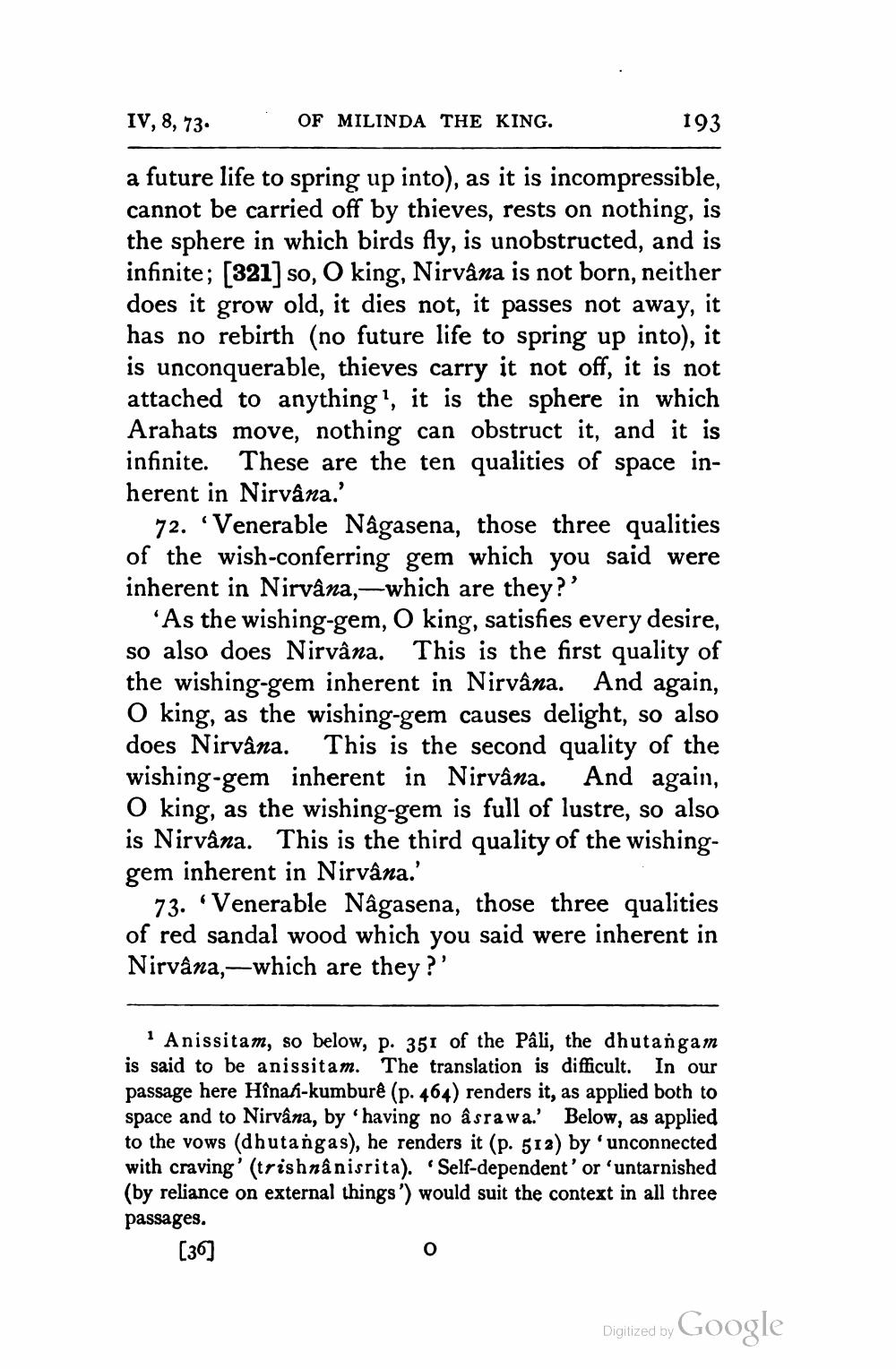________________
IV, 8, 73.
. OF MILINDA THE KING.
193
a future life to spring up into), as it is incompressible, cannot be carried off by thieves, rests on nothing, is the sphere in which birds fly, is unobstructed, and is infinite; [321] so, O king, Nirvana is not born, neither does it grow old, it dies not, it passes not away, it has no rebirth (no future life to spring up into), it is unconquerable, thieves carry it not off, it is not attached to anything?, it is the sphere in which Arahats move, nothing can obstruct it, and it is infinite. These are the ten qualities of space inherent in Nirvana.'
72. Venerable Nâgasena, those three qualities of the wish-conferring gem which you said were inherent in Nirvana,—which are they?'
'As the wishing-gem, o king, satisfies every desire, so also does Nirvana. This is the first quality of the wishing-gem inherent in Nirvana. And again, O king, as the wishing-gem causes delight, so also does Nirvana. This is the second quality of the wishing-gem inherent in Nirvâna. And again, O king, as the wishing-gem is full of lustre, so also is Nirvana. This is the third quality of the wishinggem inherent in Nirvana.'
73. Venerable Nâgasena, those three qualities of red sandal wood which you said were inherent in Nirvana, -which are they?'
Anissitam, so below, p. 351 of the Pali, the dhutangam is said to be anissitam. The translation is difficult. In our passage here Hînafi-kumburê (p. 464) renders it, as applied both to space and to Nirvâna, by having no âsrawa.' Below, as applied to the vows (dhutangas), he renders it (p. 512) by 'unconnected with craving' (trishnânisrita). Self-dependent' or 'untarnished (by reliance on external things') would suit the context in all three passages.
[36]
Digitized by Google




